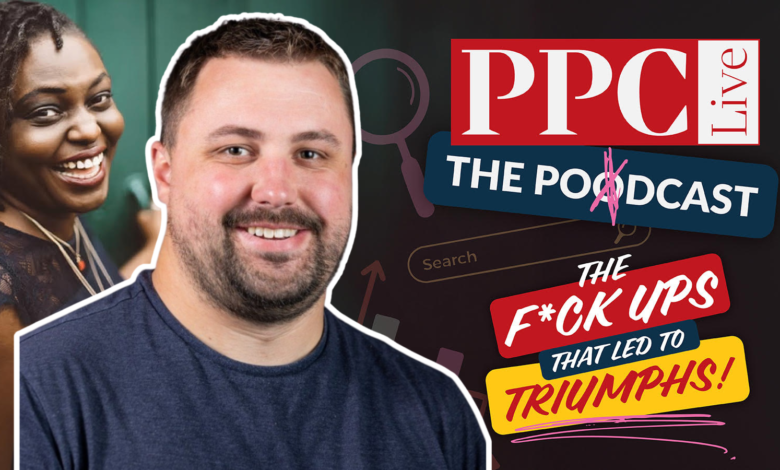Jack Hepp: Why I Was Fired From My First PPC Job

▼ Summary
– Jack Hepp was fired from his first PPC job after a major budget underspend cost a client significant revenue.
– He identifies poor communication and fear of admitting mistakes as the root cause of his failure.
– The lack of formal training and mentorship at the agency contributed to the preventable error.
– His professional network provided a crucial opportunity that revived his marketing career after being fired.
– Jack now emphasizes transparency and proactive communication to build trust and handle mistakes effectively.
Getting fired from your first job can feel like a career-ending disaster, but for Jack Hepp, founder of industrious Marketing LLC, it became the catalyst for a powerful professional comeback. In a revealing podcast interview, Jack shares the story behind his termination from his initial PPC agency role and the lessons that reshaped his entire approach to digital marketing.
The pivotal moment arrived just eighteen months into his first position. Eager but inexperienced, Jack was responsible for a client’s Google Ads account when a significant error occurred. “We dramatically underspent a client’s ad budget for the month , by almost 50%,” Jack recalls. This miscalculation had immediate financial repercussions for the client, whose online sales depended heavily on the campaign. As the primary account contact, Jack shouldered the blame. “I was fired,” he states plainly. “It was my first job ever, and it crushed me.”
In hindsight, Jack identifies the true failure as a breakdown in communication, not just the budget error. He explains that multiple parties were involved, including other agencies and management layers, but he failed to speak up when problems emerged. “I didn’t communicate clearly enough. I was afraid to admit that something was going wrong,” he confesses. This fear of honesty, a common trait among early-career professionals, can stifle innovation and risk-taking. Jack now champions transparency as a core professional value, believing that better communication might have altered the outcome.
The conversation also highlighted systemic issues within the agency. Jack received no formal training before being assigned significant digital responsibilities. The assumption seemed to be that his youth equated to innate digital expertise. “It was very much like, ‘You’re young, you know how the internet works,’” he notes wryly. “But I didn’t know what I didn’t know.” This lack of mentorship and proper management essentially set him up for failure, underscoring that effective leadership involves teaching juniors not just what to do, but why they are doing it.
After his dismissal, Jack was ready to abandon marketing entirely and even explored opportunities in banking. However, his professional network intervened three months later. A local agency reached out unexpectedly after a contact vouched for his abilities, advising them, “You need to talk to Jack. He’s great , don’t judge him by that one mistake.” This single connection reignited his marketing career, demonstrating that a strong professional network can act as a vital safety net. Engaging with industry communities on Slack, LinkedIn, and PPC forums can forge relationships that rescue and advance careers.
The experience taught Jack the critical importance of ownership and transparency. Since that initial failure, he has managed numerous campaigns and, inevitably, made other mistakes, like the classic typo inputting a $1,000 daily budget instead of $100. This time, his response was different. He immediately informed his manager, proactively addressed the client, corrected the campaign pacing, and moved forward. Being open about the error built trust rather than destroying it. His central takeaway is to communicate openly, even when it’s uncomfortable, as people tend to be understanding when met with honesty and a clear plan for resolution.
The discussion also turned to the impact of artificial intelligence on the PPC industry. Jack cautions against over-relying on automation, noting that while AI simplifies account management, it can also make competent management more difficult. He observes a troubling trend where brands remove human oversight entirely, leading to nonsensical ad copy and poor targeting. He asserts that AI should function as a tool, not a crutch, and that human judgment grounded in marketing fundamentals, audience, message, and intent, remains irreplaceable.
For managers guiding new marketers in this AI-driven era, Jack offers straightforward advice: ensure your team comprehends the reasoning behind automated tasks, not just the process of executing them. Fostering this level of critical thinking helps prevent errors before they occur and builds a more resilient, knowledgeable workforce.
Reflecting on his journey, Jack likens his PPC career to a movie sequel, an unexpected return after the story seemed finished. His path from a terminated beginner to an established expert serves as a potent reminder that early setbacks do not define a career; they can instead lay the foundation for greater success.
(Source: Search Engine Land)